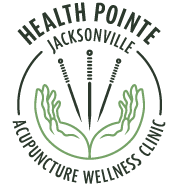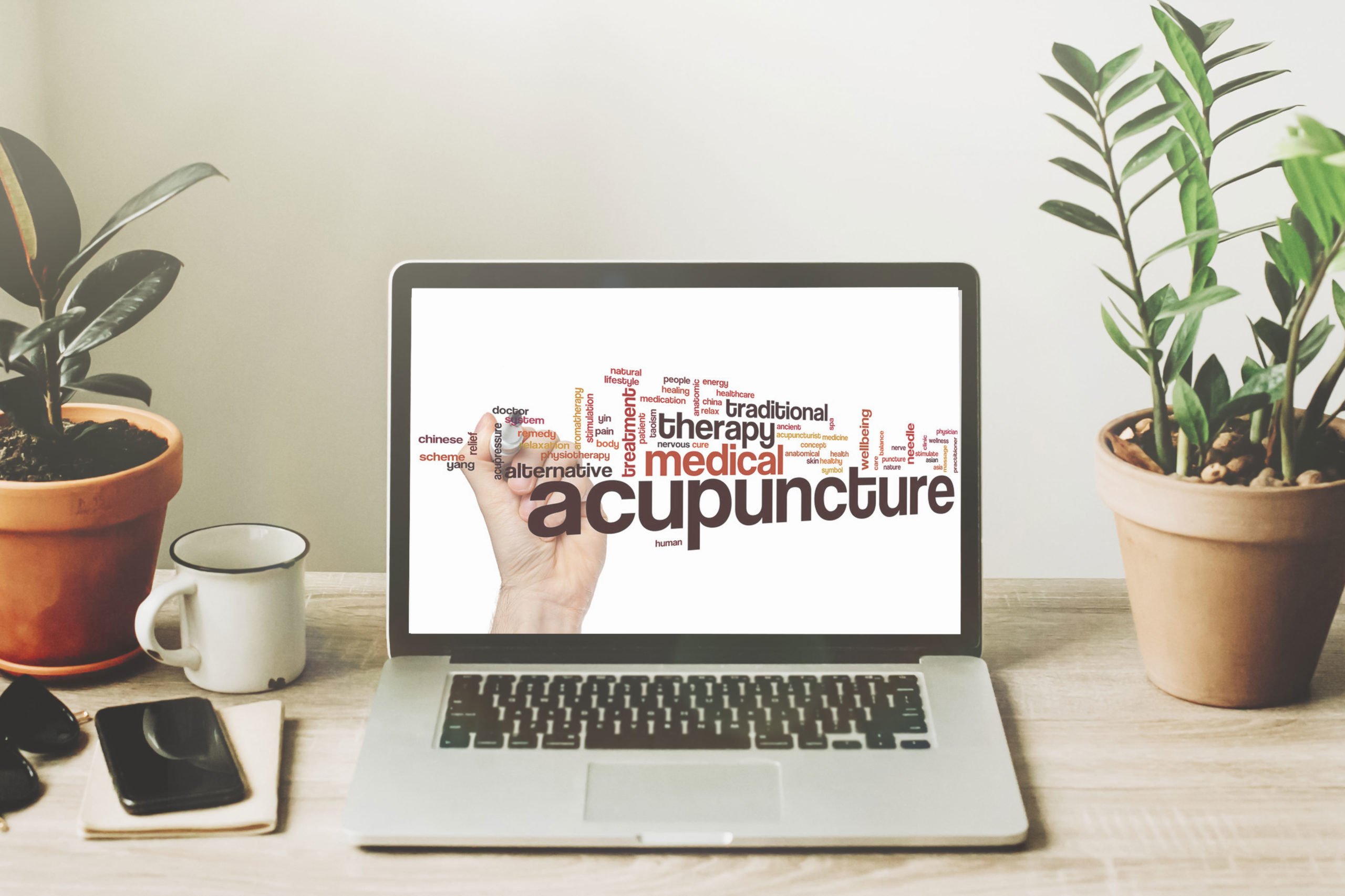Qi Mail™
The Acupuncture NewsletterDecember 2011
Julee Miller AP, DOM, BS, LMT
Health Pointe Jacksonville, LLC
3840 Belfort Road, Suite 305
Jacksonville, FL 32216
904-448-0046/www.hpjax.com
Alleviate Your Stress with Acupuncture and Oriental Medicine
As a normal part of life, stress enables us to get things done. If left unmanaged, stress can lead to emotional, psychological, and even physical problems. Stress causes a disruption in the flow of vital energy, or Qi, through the body. These energetic imbalances can throw off the immune system or cause symptoms of pain, sleep disturbances, abnormal digestion, headaches, menstrual irregularities, aggravation of already troublesome health conditions and, over time, more serious illnesses can develop.
Stressful situations that last over a long period of time can create an ongoing low-level stress that puts continual pressure on the nervous system, increasing activity, and can cause the overproduction of hormones. The extra stress hormones over an extended period of time may wear out the body’s reserves, lead to fatigue, depression, a weakened immune system, and a host of serious physical and psychological ailments.
Some signs of stress overload include:
– anxiety or panic attacks
– feelings of constant pressure, hassled and hurried
– irritability and moodiness
– physical symptoms such as stomach problems, headaches, or even chest pain
– allergic reactions, such as eczema or asthma
– problems sleeping
– overindulgence in food, alcohol, smoking, or drugs
– sadness or depression
Stress is often the cause of illness and the deterioration of health. Finding a release valve for your stress can help you stay healthy. According to Oriental medicine, stress, frustration, and unresolved anger can play an important part in throwing the immune system off and allowing pathogens to affect the body. Through acupuncture, these energy blockages can be addressed. Acupuncture points can help energy flow smoothly, and alleviate not only the symptoms of stress and anxiety, but the stress and anxiety itself.
Numerous studies have demonstrated the substantial benefits of acupuncture in the treatment of stress. Acupuncture improves circulation of blood throughout the body, which oxygenates the tissues and cycles out cortisol and other waste chemicals. The calming nature of acupuncture also decreases heart rate, lowers blood pressure and relaxes the muscles.
In addition to acupuncture, Oriental medicine offers a wide range of tools and techniques that can be integrated into your wellness plan to keep stress in check. These tools include Tui Na, Qi Gong exercises, dietary therapy, meditations and acupressure that you can administer at home.
While it isn’t always possible to remove the external forces causing stress, the ability to effectively deal with stress is a choice. Take time for yourself to cultivate the energy you need to handle your stress more skillfully and effectively.
If you or someone you know is experiencing stress or a stress related disorder, contact us for more information about how acupuncture and Oriental medicine can help you regain peace of mind, regulate your immune system and stay healthy and schedule an appointment today @ (904) 448-0046!
Acupuncture Gives Hope to Patients with PTSD
Post-Traumatic Stress Disorder (PTSD) is a severe type of anxiety disorder. PTSD results from a person witnessing or being involved in a traumatic event that causes intense fear, helplessness or horror, such as, a natural disaster, rape, childhood abuse, a tragic accident, or war. Signs and symptoms of post-traumatic stress disorder typically begin within three months of a traumatic event but can, in some instances, occur years after the event.
Symptoms of Post-Traumatic Stress Disorder include:
1. Intrusive memories – flashbacks and nightmares of events
2. Avoidance and numbing – feeling emotionally numb, hopelessness about the future, avoiding anything that is a reminder of the precipitating event.
3. Hyperarousal – increased anxiety, irritability or anger, self-destructive behavior (e.g., excessive drinking), and an exaggerated startle response (jumping at sounds)
Acupuncture as Treatment for Post-Traumatic Stress Disorder
In the last couple of years, acupuncture, has been getting more attention as a treatment for PTSD, particularly from military and veterans since soldiers post combat are at a high risk for suffering from PTSD. The results from acupuncture are hopeful. Time and again, acupuncture has proven to be an effective modality for treating the symptoms of PTSD.
Acupuncturists Without Borders (AWB), a group that previously provided relief to the survivors of the earthquake in Haiti and hurricane in New Orleans, launched The Military Stress Recovery Project. This organization provides free acupuncture treatments for veterans returning from Iraq and Afghanistan, as well as their families. Treated military personnel have reported improved mental clarity, less anxiety, and a reduction in stress.
There are good precedents for the use of acupuncture to treat post-traumatic stress disorder. Walter Reed Medical Center, a military hospital, has begun to investigate acupuncture as a viable treatment for returning veterans.
Researchers at the University of Louisville School of Medicine conducted a clinical trial examining the effects of acupuncture on the symptoms of PTSD. They analyzed depression, anxiety, and impairment in 73 people who had been diagnosed with PTSD and found that acupuncture provided treatment effects similar to group cognitive-behavioral therapy. Both acupuncture and cognitive-behavioral therapy were superior to the control group. Additionally, treatment effects of acupuncture and group therapy were maintained for 3 months after the end of treatment.
Why does acupuncture help the symptoms of post-traumatic stress disorder? Correctly placed needles help the body re-regulate itself from the effects of stress, PTSD, depression and anxiety. In turn, this allows the individual to focus on their activities and enable them to deal with daily events.
Source: Hollifield, M., Sinclair-Lian, N., Warner, T., and Hammerschlag, R. “Acupuncture for Post-traumatic Stress Disorder: A Randomized Controlled Pilot Trial.” The Journal of Nervous and Mental Disease, June, 2007 V195(6):504-13.
Coping With Holiday Stress
The holiday season can be filled with a dizzying array of demands, visitors, travel and frantic shopping trips. For many people, it is also a time filled with sadness, self-reflection, loneliness and anxiety. Compound the usual seasonal pressures with economic strain and you many find this to be one of the most emotionally trying times of the year.
Boost your overall ability to handle seasonal stress by replenishing the nutrients that stress hormones deplete by including the following foods in your meals:
Blackberries – Blackberries are jam packed with vitamin C, calcium and magnesium. Vitamin C has shown to be a powerful stress reducer that can lower blood pressure and return cortisol levels to normal faster when taken during periods of stress.
Cruciferous Vegetables – Cauliflower, broccoli, cabbage, and kale are full of stress-relieving B vitamins. Cauliflower is also one of the very best sources of vitamin B5, or pantothenic acid. Pantothenic acid helps turn carbohydrates and fats into usable energy and improves your ability to respond to stress by supporting your adrenal glands.
Salmon – Salmon is a healthy and delicious way to get your dose of B vitamins and omega-3 fatty acids. Among the many benefits of omega-3 fatty acids, a 2003 study published in Diabetes & Metabolism found that a diet rich in omega-3 fatty acids significantly reduced the stress response and kept the stress hormones cortisol and epinephrine in check.
Tools to Effectively Manage Stress
Increase your ability to effectively manage stress by including these five tools in your wellness plan!
Eat Healthily – More than 1400 chemical changes occur as stress hormones, such as cortisone, deplete important nutrients such as B vitamins, vitamin C and magnesium from the body. A balanced, varied diet provides your body with the nutrients it needs to handle stress.
Exercise – Exercise stimulates the body to release endorphins, which are brain chemicals that improve mood and relieve stress.
Outlook – Your outlook influences the way you see things. Change is a healthy, normal part of life. Think of challenges as opportunities.
Relax – Relaxing is a release valve for stress. Relaxation methods vary by individual and can include meditation, yoga and exercise.
Restorative Sleep – Practicing good sleep hygiene will give your body an opportunity to recover from everyday stress.



About The Author: Julee Miller
More posts by Julee Miller